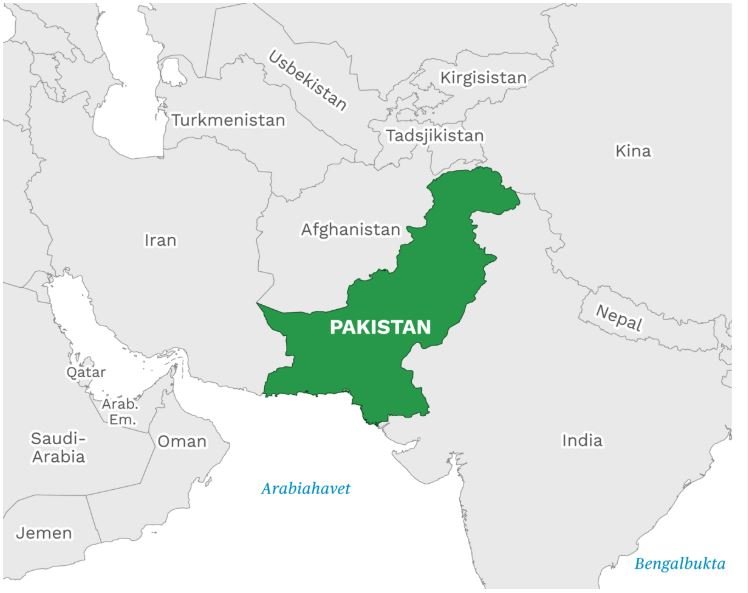PUBLICATIONS
Addressing police and military involvement in serious and organised crime
In Addressing police and military involvement in serious and organised crime Liam O’Shea, Louis-Alexandre Berg, Alexander Kupatadze and Lucia Tiscornia present compelling comparative studies from Colombia, Georgia, and South Africa. They highlight how political will, institutional control, and prosecutorial strength are key to curbing security forces’ involvement with organised crime. The authors propose politically grounded strategies over technical fixes for sustainable, integrity-driven reform.
Dr Liam O’Shea (RUSI)
Dr Louis-Alexandre Berg (Georgia State University)
Dr Alexander Kupatadze (Kings College London)
Dr Lucia Tiscornia (University College Dublin)
December 2025
Conceptualising the interplay of corruption and an informal security welfare regime: Pakistan case study
Investigating the complex relationship between corruption and informal security welfare regimes, using Pakistan as a case study. The study reveals that corruption plays a dual role: it undermines formal welfare provision while simultaneously acting as a survival mechanism for those excluded from official support.
Dr Zahid Mumtaz (Australian National University)
Dr Caryn Peiffer (University of Bristol)
November 2025
The logic of resistance: The ongoing state threats challenge from Iran
In this fifth synthesis paper, Matthew Redhead focuses on Iran as a ‘state threats’ actor. Drawing on previous research he examines the scope and nature of Iran’s actions, highlighting its growth and placing it within the context of other international state and non-state actors.
He concludes by making recommendations for policymakers’ consideration.
Matthew Redhead (RUSI)
November 2025
Flying Money, Hidden Threat Understanding the growth of Chinese Money Laundering Organisations
In this research paper, Kathryn Westmore examines the rapid development of Chinese Money Laundering Organisations (CMLOs), describing their history and expansion in the West. She analyses them within a state threats framework and discusses the policy implications.
Kathryn Westmore (RUSI)
November 2025
Women and Illicit Finance in Russia’s Occupation of Ukraine
This research paper takes a gendered view of Russia’s use of illicit financial flows (IFF) in occupied Ukraine, by examining the role of women as both victims and perpetrators. The paper sheds light on the overlooked role that women are playing, be that - implementing corrupt policies, acting as proxies, or surviving under duress - while facing systemic harm, coercion, and prosecution amid gendered norms.
Dr Orly Stern
Olivia Allison (University of Exeter)
October 2025
Beyond the horizon: Revisionist states, middle powers and state threats in the Global South
The second in a series of synthesis papers, Matthew Redhead addresses middle powers as state threat actors. He describes the scope and nature of middle powers’ activities, identifying key actors and the state threats they undertake. He goes on to make observations for policymakers responding to middle power state threats.
Matthew Redhead (RUSI)
September 2025
The hidden front: Russia's ongoing state threats campaign
The fourth in a series of synthesis papers, Matthew Redhead addresses Russia as a state threats actor. He describes the scope and nature of Russian activity, providing an overview of actions which are varied, far-reaching and growing in number and aggression. He makes observations for policymakers and future discussion.
Matthew Redhead (RUSI)
September 2025
Velvet glove, iron fist: Understanding China’s use of state threats
The third in a series of synthesis papers, Matthew Redhead addresses China as a state threats actor. He describes the scope and nature of China’s activity, providing an overview of actions which, while more cautious than those of other revisionist states, are becoming more aggressive in some areas and have the potential for further escalation.
Matthew Redhead (RUSI)
September 2025
An absence of peace, a rumour of war: The problem of defining state threats
The first in a series of synthesis papers, Matthew Redhead addresses the definitions and conceptualisations policymakers use when addressing state threats. He offers a new model for thinking about state threats, as well as observations for future thinking.
Matthew Redhead (RUSI)
July 2025
A Framework for Countering Organized Crime: Strategy, Planning, and the Lessons of Irregular Warfare
States continue to struggle in their efforts to counter organised crime, with it proving too adaptable and too resilient to be seriously affected. This monograph it applies an “irregular warfare” lens to the problem of organised crime, helping to situate the divergent criminal activity within its crucial political context. It goes on to propose ‘A Framework for Analysis and Action’, adapted from a framework for tackling irregular warfare, to guide the analysis and planning of those who are charged with responding to the challenge of organised crime.
David H Ucko & Thomas A. Marks
(NDU Press)
July 2025
Looting Mariupol: Russia’s use of illicit finance and economic crime in occupied Ukraine
Who benefits from Russia's occupation of Ukraine? Russia's economic activities in the occupied territories are characterised by widespread corruption and profiteering off billions spent without accountability and illicit seizures of Ukrainian businesses, many of which may be war crimes. These activities create new networks and bolster vested interests, often linked to Russian security services.
Olivia Allison, David Lewis
May 2025
Total Peace Policy: Between light and shadow: A framework to analyse Colombia’s comprehensive peacebuilding policy
Contrary to initial expectations, Colombia’s Total Peace Policy have not progressed as quickly or effectively as anticipated, leading to the unintended consequence of increasing armed and criminal groups capacity to govern the territories involved in negotiations, prompting some to think the policy is strengthening both rebels and criminals. This new research paper explores the argument and demonstrates that this trajectory is not generic: it depends on the armed and criminal actors, and the specific areas and the populations involved. Through comparison of negotiations’ in three regions, the paper explores not only which aspects of life are governed, but also how they are governed.
Kyle Johnson, Felipe Botero, Mariana Botero, Andrés F. Aponte, and Lina M. Asprilla.
March 2025
“Total Peace” in Colombia: Lessons for Negotiating with Organised Crime Groups and Promoting Peacebuilding
Drawing on the findings of two new research papers from the SOC ACE research project, “Negotiating with Criminal Groups: Colombia’s Total Peace” this briefing note explains how implementation of Colombia’s Total Peace Policy provides important lessons and implications for policymakers and scholars in organised crime, conflict resolution and negotiations, and peacebuilding; in particular: the need to understand the evolving nature of violence; the importance of coordinating between local and national authorities; appropriation of the concept of “hybrid political orders”; and the importance of timing and sequencing in negotiations.
Felipe Botero, Juanita Durán, Kyle Johnson, Mariana Botero, Andrés F. Aponte, Lina M. Asprilla.
March 2025
Institutional architecture of Total Peace: A normative review studied in practice
This new research paper explores the institutional architecture of Colombia’s Total Peace Policy, (“Paz Total”) answering two key questions: 1) what is the Policy’s institutional context, and 2) how is it being implemented by the negotiating groups. The research examines implications of the Policy’s degree of centralisation, as well as the expectations and actual involvement of local authorities and the robustness of it’s legal framework.
Juanita Durán
March 2025
Negotiating with Criminal Groups: Colombia’s “Total Peace”
Drawing on the findings of two new research papers from the SOC ACE research project, “Negotiating with Criminal Groups: Colombia’s Total Peace”, this briefing note summarises lessons for negotiating with criminal groups found through fieldwork in three regions of Colombia – Buenaventura, Arauca and Tumaco. The note focuses on two critical issues that emerge in contexts where rebel and criminal governance coexist with formal institutions.
Felipe Botero, Juanita Durán, Kyle Johnson, Mariana Botero, Andrés F. Aponte, Lina M. Asprilla.
March 2025
Old Wine, New Bottles? The Challenge of State Threats
From the combination of traditional intelligence tradecraft with new technologies, attempts to innovate, a willingness to take greater risks, and a growing willingness to contract out activities to both licit and illicit non-state actors – especially organised crime groups, this research shows there is much that is new about the rising tide of hostile activities perpetrated by state actors and their partners; state threats.
This paper offers firmer definitional boundaries of state threats, and within them, explores the scale, scope and characteristics of their modern manifestation, especially - but not exclusively - from a Western perspective. It shows that many hostile activities are taking advantage of the new vulnerabilities in society, such as social media and societal reliance on technology, and that state threats have become more important as tools of policy due to “geopolitical climate change”, including perceived changes in global power balances and receding agreement on international norms of behaviour.
The paper concludes that whilst evidence suggests the results of these kinds of activities are mixed, they remain an attractive form of coercive statecraft in the medium term, and that if sustained over the long term, could have more severe effects on open societies that have robust protections in place.
Matthew Redhead (RUSI)
January 2025
The Political Will to Measure Organised Crime: Why we need it and how to build it
This briefing note offers insights on how novel approaches to measuring less visible organised crime activities such as extortion, and using the data to inform better diagnostic of the problem and develop more effective response interventions, can support the building of political will to tackle organised crime. The briefing note draws on the work done by the research team as part of Medellín Impact Lab, demonstrating how new data on extortion has led to increased political will to address the issue in the city, and Colombia more widely.
Professor Christopher Blattman, Dr Benjamin Lessing, Professor Santiago Tobón
January 2025
How to Map and Combat Urban Organised Crime: Lessons from the Medellín Impact Lab
This briefing note provides insights on how novel approaches to measurement of less visible organised crime activities such as extortion, can be used to better diagnose problems and develop, test and iterate more effective response interventions. It offers an overview of how new data on extortion has been utilised as part of a cross-sector, collaborative Impact Lab approach to tackle the pervasive issue of organised crime groups’ extortion in Medellin.
Professor Christopher Blattman, Dr Benjamin Lessing, Professor Santiago Tobón
January 2025
The Role of Financial Rewards for Whistleblowers in the Fight Against Economic Crime
This paper evaluates the evidence on the use of reward programmes for whistleblowers who report economic crimes, evaluating it against the key concerns in the debate surrounding the implementation of such schemes. It offers four observations for policymakers considering use of whistleblower rewards programmes in the fight against economic crime.
Eliza Lockhart
December 2024
Addressing Organised Crime and Security Sector Reform and Governance: Linkages, processes, outcomes and challenges
This evidence review paper explores how security and justice institutions, organised crime, security sector reform and governance and counter-organised crime interventions influence and impact each other, positively and negatively.
Huma Haider
September 2024




















